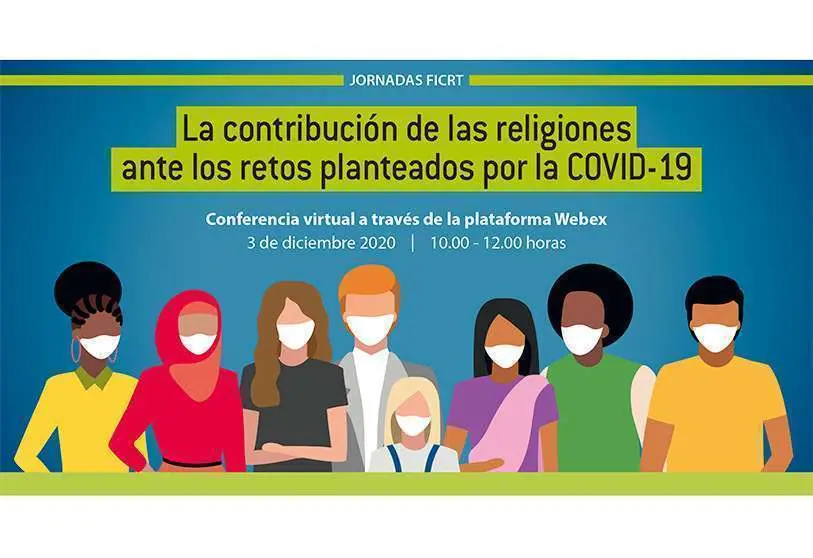The contribution of religions to the challenges posed by the COVID-19

The COVID-19 pandemic has had a great impact on the way of life in our societies. Illness, mortality or the worsening economic situation in the public and private spheres have led to changes in people's behaviour in general and in their relationship with religious beliefs in particular. In this sense, the Foundation for Islamic Culture and Religious Tolerance (FICTR) has developed this seminar in which an attempt has been made to shed light on the way in which different religions have responded to the challenges posed by the health emergency of the COVID-19.
The event, which took place telematically, was attended by four academic experts from different centres, all of whom have extensive experience in the field of the study of religions. The speakers were: Pilar Garrido Clemente, PhD in Arabic Philology from the University of Salamanca; Francisco Javier Fernández Vallina, PhD in Hebrew Philology from the Complutense University of Madrid and a graduate in Philosophy; Delfina Serrano Ruano, PhD in Arabic Philology from the University of Seville; and Fernando Amérigo Cuervo-Arango, PhD in Law from the Complutense University of Madrid.

Firstly, PhD. Pilar Garrido, framed her presentation under the title "From the pandemic to the word", and referred to the relationship that exists between human beings, the word and belief. She explained how the search for meaning is established through the written word, indicating that "words weave stories". The teacher also left two keys in relation to the pandemic we are experiencing. The first is that one of the things that has been most evident in those who have suffered from the disease is, precisely, the lack of communication, the impossibility of having words and dialogue. The second has to do with the consumption of series through the different platforms, something that shows the need for human beings to be told stories.

Posteriormente, el PhD. Francisco Javier Fernández, ha incidido en la relación entre "La pandemia, la conciencia y la ética" en la Subsequently, Dr. Francisco Javier Fernández has stressed the relationship between "The pandemic, conscience and ethics" today. During his talk he showed that today the spiritual space continues to occupy an important place in human beings, even in those who do not manifest a preference for a particular religious belief. The doctor said that the pandemic has boosted solidarity in our societies and that, he pointed out, this means that ethics is still present in highly commercialised societies.

PhD. Delfina Serrano then went on to discuss the initiatives that have been taken from Islam to tackle the health crisis. Firstly, she has shown historically that this is not the first time that Islam has had to face a pandemic that makes it difficult to comply with Islamic doctrine – Friday prayers, the end of Ramadan or the pilgrimage to Mecca – and that, therefore, the situation it has had to face is not new. In this sense, he pointed out that the legal and religious authorities have done a great deal of work in arguing why the measures adopted by the World Health Organisation and the other health authorities should be complied with. He concluded by stressing that it cannot be said, in view of the facts, that there is a conflict between Islam and modern medicine.

Finally, PhD. Fernando Amérigo focused on the Spanish sphere to give a national vision of how religions have behaved after the two States of Alarm that have been approved by the Government and Congress. He reviewed the laws that may affect religious freedom, stressing that in extreme situations, the practice of worship may be limited for reasons of security, health or mobility. It is precisely because of health reasons that worship has not been practiced normally in recent months, something that has been respected by the majority of the main beliefs in our country. The religious organisations themselves have urged the faithful to comply with health measures – mainly reductions in capacity and distancing – and there has been hardly any protest against the limitations.








